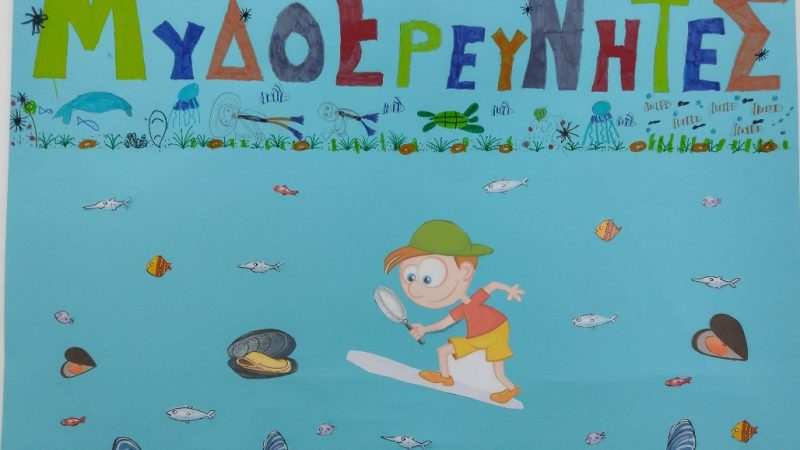The Thermaikos Gulf and the area of Makrygialos are known for their mussel farms. Makrygialos is a village of 2000 people, and the school has about 90 students. Most of the students’ parents work on mussel farms, and the local community depends almost directly on them. However, pollution is observed in the sea and surrounding coasts, while in recent years, mussel crops have also been threatened with destruction due to rising sea temperatures. In the last two years, students with their families have left Makrygialos for other places because of a significant reduction in mussel production.
The aim of this living-lab project was to involve 13 students and 3 teachers to investigate why pollution is in the local ecosystem and eliminate it. Then, to examine the connection between the destruction of mussel farms in the last two years and the rise of sea temperature and how it is linked to climate change. Finally, to propose solutions so that both mussel farms and the local community remain in a healthy environment.

The teacher who coordinated the project first participated in the SALL workshop organized by the National Coordinator (EA), and the initial discussion regarding this project took place there. The teacher was familiar with the implementation of both school and European programs. 13 students and 3 teachers were involved.
After months of work, feedbacks were collected firstly from the teacher who oversees the project, who was really excited with the response that the students have had. Furthermore, the local community has embraced the action seeing that it is a matter that concerns them directly and supports the children in all efforts. The school manager supports the action despite the lack of experience, and is using both the resources available in the school and his personal contacts to contribute to the project. For students, it is an everyday project as they feel part of a community and are excited by the fact that they can be the agent of change in their place. Local producers are interested in contributing to the project and understand, through the impact they have on their production, the importance of better protecting the planet. The oceanographer develops soft skills through the process and contribute by encouraging collaborations that enhance knowledge, networking, sharing, and application of science and technology research findings, as well as integrating real-world initiatives into the classroom.

